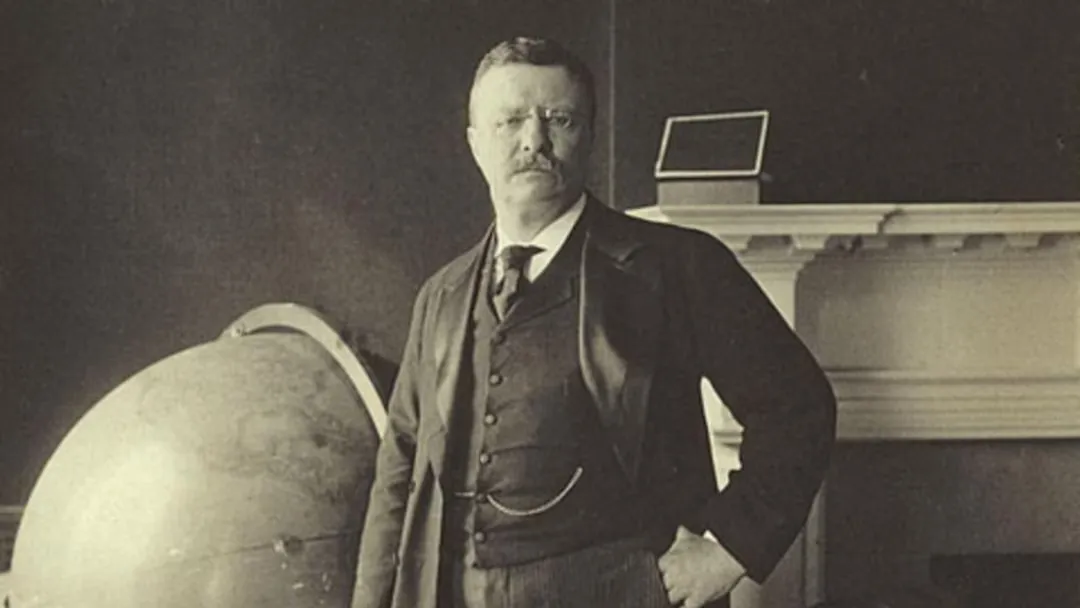Table of Contents
The overuse of natural resources has been a topic of concern for decades, particularly in the realm of environmentalism and sustainable development.
One figure whose views on the matter have been highly influential is Theodore Roosevelt, the 26th President of the United States.
His stance on the conservation of natural resources has shaped not only American policies but also international practices regarding environmental protection.
This article explores Roosevelt’s perspective on the overuse of natural resources, his actions to combat it, and how his legacy continues to influence modern conservation efforts.
The Rise of Environmental Awareness in Roosevelt’s Time
At the time Roosevelt assumed the presidency in 1901, the United States was undergoing significant industrial expansion.
The rapid growth of industries, coupled with the increasing demand for natural resources, led to widespread exploitation of forests, minerals, and wildlife.
This overuse of natural resources posed serious threats to the environment, yet it was not immediately seen as an urgent issue by many, including politicians and industrialists. Roosevelt, however, had a different view.
Roosevelt was deeply influenced by his personal experiences with nature, particularly his time spent exploring the American wilderness.
He believed that the nation’s natural beauty and resources were being exploited at an unsustainable rate and that such unchecked exploitation would ultimately lead to environmental collapse.
In response to this growing concern, Roosevelt became one of the first political leaders to recognize the importance of conservation and natural resource management on a national level.
Roosevelt’s Approach to Conservation
Theodore Roosevelt’s concern about the overuse of natural resources led him to become a leading advocate for conservation.
He understood that conserving natural resources was not just a matter of preserving scenic landscapes but also a pragmatic strategy for ensuring that the country’s resources could continue to sustain future generations.
Roosevelt’s approach was comprehensive and multifaceted, involving land preservation, the establishment of national parks, and the regulation of resource extraction.
Establishment of National Parks and Reserves
One of Roosevelt’s most significant contributions to environmental conservation was the creation of national parks and wildlife reserves. Through his presidency, Roosevelt established five national parks, 18 national monuments, and 150 national forests.
His most notable conservation action was the signing of the Antiquities Act of 1906, which gave him the authority to create national monuments on federal land.
This allowed him to preserve vast areas of public land, ensuring that these spaces would remain protected from the overuse and destruction caused by commercial and industrial interests.
The Role of the National Conservation Commission
In addition to creating parks and reserves, Roosevelt established the National Conservation Commission in 1908 to study and promote the conservation of America’s natural resources.
This commission was responsible for documenting the country’s natural resources and making recommendations for their responsible management.
Roosevelt believed that sustainable use of resources could be achieved by balancing economic development with environmental protection.
He understood that the nation’s prosperity depended not only on exploiting its resources but also on managing them in a way that would preserve their availability for the future.
Protecting Wildlife and Regulating Hunting
Another area where Roosevelt showed his commitment to conservation was in wildlife protection. During his time in office, Roosevelt took decisive steps to regulate hunting and protect endangered species.
He established the U.S. Fish and Wildlife Service and signed into law legislation to protect migratory birds.
Roosevelt also advocated for stricter regulations on hunting, particularly the hunting of game species that were at risk of extinction.
He understood that unregulated hunting was contributing to the overuse of wildlife and that action was necessary to prevent the loss of species.
Roosevelt’s Environmental Philosophy: A Balance Between Development and Preservation
Roosevelt’s approach to conservation was unique because it sought to find a balance between development and preservation.
He recognized the importance of natural resources for economic development but also understood that unchecked exploitation could lead to irreversible damage to the environment.
His philosophy emphasized the need for responsible management of resources to ensure their long-term sustainability.
Roosevelt believed that conservation was not about halting all economic activities but rather about managing natural resources wisely.
He championed the idea of sustainable development, where resource extraction could occur in a way that would not deplete the resources for future generations. This approach was groundbreaking at the time and laid the foundation for modern conservation practices.
Read also: HCOOCH CH2 H2O
The Legacy of Roosevelt’s Conservation Efforts
The legacy of Theodore Roosevelt’s conservation efforts can still be seen today in the numerous national parks, monuments, and wildlife refuges that he helped establish.
His policies continue to influence modern environmentalism, and his belief in the importance of protecting natural resources for future generations remains a guiding principle for many environmental organizations and policymakers.
Roosevelt’s conservation initiatives also set the stage for the environmental movement that gained momentum in the 1960s and 1970s.
His policies helped raise awareness about the need to protect natural resources, which ultimately led to the passage of landmark environmental legislation, including the Clean Air Act and the Endangered Species Act.
Roosevelt’s efforts continue to inspire politicians, activists, and citizens alike to advocate for the protection of the planet’s precious resources.
How Roosevelt’s Views on Natural Resources Resonate Today
Today, we face many of the same challenges that Roosevelt confronted during his time in office. The overuse and exploitation of natural resources continue to threaten the environment, leading to deforestation, loss of biodiversity, and climate change.
However, Roosevelt’s belief in the necessity of conservation and sustainable resource management offers a framework for addressing these challenges.
His work reminds us that responsible stewardship of natural resources is not only essential for preserving the environment but also for ensuring a sustainable future for generations to come.
As modern society grapples with the overuse of natural resources, we can look to Roosevelt’s legacy as a guide.
His actions demonstrated that protecting the environment was not a choice between progress and conservation, but a path forward that embraced both.
His belief in the importance of preserving nature for future generations resonates strongly in today’s global conversation about sustainable development, climate change, and resource conservation.
The Role of Modern Conservationists
Today’s environmentalists and conservationists continue to fight for policies that protect natural resources from overuse.
From advocating for renewable energy to fighting against deforestation and pushing for climate change action, modern conservation efforts echo the principles Roosevelt championed over a century ago.
The work of conservation organizations, government agencies, and environmental activists is essential to maintaining the delicate balance between human development and the protection of the planet’s resources.
Final Words
Theodore Roosevelt’s thoughts on the overuse of natural resources were far ahead of his time. His actions and philosophy laid the groundwork for the conservation movement that continues to this day.
Roosevelt’s belief in the need to protect the environment while also allowing for responsible use of natural resources has had a lasting impact on U.S. policy and global environmental practices.
As we confront the ongoing challenges of climate change and resource depletion, Roosevelt’s conservation legacy serves as a reminder that sustainable management is not only necessary but essential for the future of the planet.

